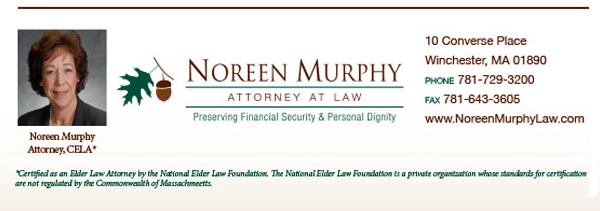
One Of The Most Valuable Benefits Available To Veterans Is Also One Of The Least UtilizedMillions of our nation's greatest heroes--veterans and their families who sacrificed so much in defense of our country--are eligible for government benefits but do not receive them. One benefit in particular, the Aid and Attendance Pension Program, can dramatically improve the lives of eligible veterans and their families.
The Aid and Attendance Pension Program allows an eligible veteran to receive more than $25,000 a year for medical expenses and long-term care. The eligible veteran's widowed spouse can receive over $13,500 a year. This benefit can be used to pay anyone, including family members, for in-home care. It can also be used to pay for assisted living and nursing home care. The Aid and Attendance Pension Program allows an eligible veteran, or the veteran's widowed spouse, to remain independent for as long as possible, receive the care he or she needs and protect family assets against the high cost of long-term care. Eligibility requirements for Aid and Attendance include:
What happens if a veteran meets all of these requirements but has too many assets to qualify for the benefit? With proper planning, most estates can be restructured so that the veteran or widowed spouse is able to pass the asset and income test, thereby becoming eligible for the benefit. It is important to note that the vast majority of applications for Aid and Attendance are initially denied despite the fact that the veteran or widowed spouse is indeed eligible. Fortunately, there is an appeal process and many veterans are able to obtain all of the benefits to which they are entitled. |
Planning Options For Parents Of Troubled Adult Children |
|

|
|
|
One of the more fundamental aspects of estate planning is protecting assets for our enjoyment today and tomorrow, and for that of our loved ones after we are gone. However, for
parents of adult children who suffer from mental illness or addiction to drugs or alcohol, the planning challenges combined with the strong emotions involved can seem overwhelming.
A recent article in the New York Times examines this issue and offers some financial steps parents can take to avoid worsening their
A major problem faced by parents of troubled adult children is admitting that their son or daughter is not simply "going through a phase" and will "come around" over time. Another is trying to picture the child's future. When children suffer from addiction or a mental illness such as schizophrenia, it is very difficult to make any type of prediction about what they will need financially in terms of care down the road. Periods of lucidity can end suddenly with a breakdown. In the case of addiction, a relapse is always possible, even after years of living drug-free. According to the article in the New York Times, one planning option is a special-purpose trust. This trust can be used to provide children with the financial assistance they need to enjoy a semblance of the life they might have had without mental illness or addiction. "You might be working with a situation where, with an addictive individual, you could have some good years and some bad years," said Karen Francois, the chief personal trust officer at Evercore Trust Company. "You want that latitude to make changes with the distributions." In short, flexibility is the key. Another important consideration is who will have the authority to make distributions from the trust to the troubled adult child. While parents, family members or corporate trustees may be able to handle the administration of the trust, a distribution adviser such as a social worker with specialized training can assess the child's condition and offer valuable counsel. You can read the entire New York Times article by going to nytimes.com |
Do You Need A Prenuptial Agreement? |
|

|
|
Okay, so you popped the big question, and he or she said yes! Whew, what a relief! Now there's so much to do, so many plans to make: the guest list, the invitations, the reception, the band, the cake, the honeymoon... the prenup? While it is hardly the most glamorous aspect of planning a wedding and a life together, many couples should at least discuss it. Why? A prenuptial agreement can protect you from financial loss in case your relationship breaks down--no small concern when you consider that half of all marriages end in divorce. Is a prenuptial agreement a good idea for you and your intended spouse? Probably, if any of the following scenarios apply:
If you think a prenuptial agreement makes sense in your situation, the next question is when the topic should be broached and documents prepared. The short answer is this--the sooner the better. Even though it may be a sound financial decision, asking for a prenup is obviously a delicate situation. The person who brings up the subject may be seen as lacking trust in his or her mate. Requesting a prenuptial agreement well in advance should give you and your intended spouse the time to discuss the subject at length and come to an understanding. This is infinitely more preferable than, say, approaching your beloved a few days before the wedding and saying something like "Oh, by the way darling, my lawyer says I need you to sign this." In addition to the shock involved in such a last-second approach, there are sound legal reasons for broaching the subject as soon as possible. Chief among them is that it avoids the appearance of coercion, which renders some agreements null and void. A prenuptial agreement should be signed, at the very latest, one month before the wedding, and before any invitations are sent out. Also, each party should have his or her own attorney involved in the design and review of the prenuptial agreement. |
A Personal Note From Noreen |

|
|
This Newsletter is my way of staying in touch with you and highlighting issues that may affect you personally and financially, now or in the future. As always, feel free to give me a call anytime at the office. I never charge for these calls, and enjoy hearing from you. I'd also like to thank you for the many referrals to family and friends. I appreciate the confidence and trust placed in me. If you feel someone would like to receive this newsletter, just give me a call and I will add them to the mailing. As some of you know, I was accredited as a Certified Elder Law Attorney by the National Elder Law Foundation (NELF) in 2013. There are very few Certified Elder Law Attorneys in Massachusetts and less than 500 in the entire country. Achieving this designation was not easy. (Click here to see the requirements.) However, I knew that by completing the rigorous certification process, I would be able to continue to provide you with the best possible counsel on matters impacting your well-being and that of your loved ones. I look forward to meeting your planning needs in the future. Kindest regards, Noreen Murphy
|




